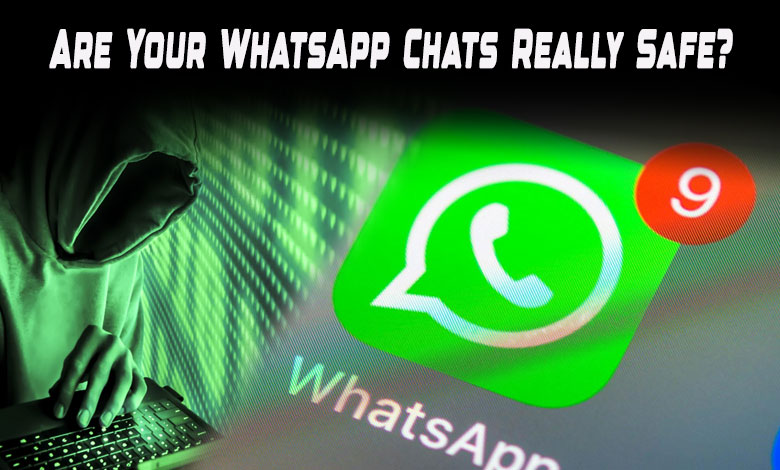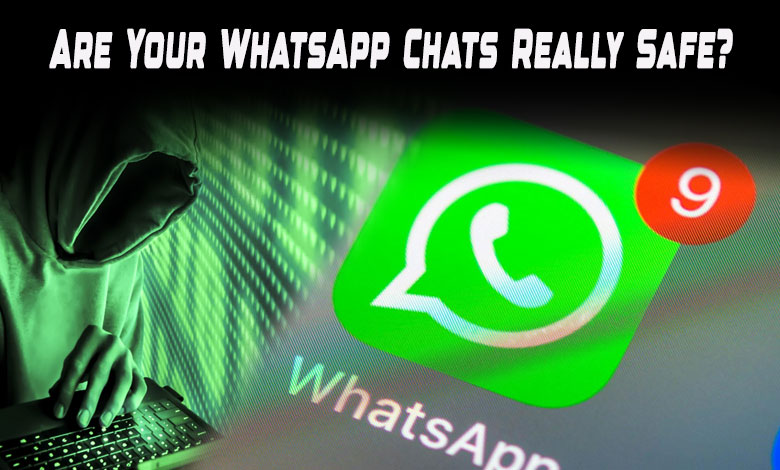Can Your WhatsApp Chats Be Hacked or Leaked? What You Should Know About the Dark Side of the App
Discover the truth about WhatsApp privacy and encryption. Learn how your chats can be hacked or leaked, and what you can do to protect your messages from unauthorized access.

Discover the truth about WhatsApp privacy and encryption. Learn how your chats can be hacked or leaked, and what you can do to protect your messages from unauthorized access.
In a bombshell revelation, Meta CEO Mark Zuckerberg disclosed that U.S. intelligence agencies, such as the CIA, could potentially access private WhatsApp messages if they physically seize a user’s device. While WhatsApp’s end-to-end encryption is widely praised for its strong security features, Zuckerberg’s statement on The Joe Rogan Experience podcast has sparked concerns about the real limits of digital privacy.
Table of Contents
WhatsApp Encryption and Its Vulnerability
WhatsApp is one of the most secure messaging platforms, using end-to-end encryption to ensure that only the sender and recipient can access messages, protecting communications while in transit. However, Zuckerberg clarified that this encryption does not extend to a user’s physical device. He explained that if an intelligence agency, like the CIA, were to physically access a device, they would be able to read the WhatsApp messages stored on it, undermining the encryption safeguards.
The Risk of Spyware and Physical Device Compromise
One significant vulnerability discussed by Zuckerberg was the potential installation of spyware, such as the notorious Pegasus software, which can bypass WhatsApp’s encryption. Spyware can secretly access messages, call logs, and even control a device’s microphone or camera, allowing external parties to gain complete access to a user’s data.
Also Read: Bitcoin Surges Over USD 100,000: Will Trump’s Actions Fuel Even Bigger Gains?
Zuckerberg’s admission highlights a key limitation of WhatsApp’s privacy protections. Although the app’s encryption protects communications during transit, it becomes ineffective if the device itself is compromised through theft, seizure, or spyware.
WhatsApp’s Privacy Features and Meta’s Response
In light of growing concerns, Meta has introduced additional privacy features in WhatsApp, including disappearing messages, view-once media, and encrypted backups. These features help minimize the risk of sensitive information being exposed if a device is physically accessed. However, privacy advocates are concerned that the new measures might not be sufficient to fully address the risks outlined by Zuckerberg.
Widespread Global Concerns Over Digital Privacy
Zuckerberg’s remarks have sparked a global debate on digital privacy and government surveillance. Users in countries with weaker data protection laws are particularly worried about the implications of this new information, as many users rely on WhatsApp’s encryption for confidential communication.
Cybersecurity experts have also weighed in, emphasizing that the real threat to user privacy comes from device vulnerability, not the app itself. “WhatsApp’s encryption gives a false sense of security if the device itself isn’t secure,” said one expert.

How to Protect Your WhatsApp Messages
Experts are advising users to take proactive measures to protect their devices and, by extension, their WhatsApp chats. Some recommended steps include:
- Using Strong Passwords and Biometric Authentication: Ensure that your device is protected with a secure password and biometric authentication methods such as fingerprint or face recognition.
- Avoid Suspicious Links and Downloads: Be cautious of phishing links or malicious software that could install spyware on your device.
- Regular Updates: Keep your device and apps up to date to patch security vulnerabilities.
- Enable WhatsApp Privacy Features: Activate features like disappearing messages, two-factor authentication, and encrypted backups for added privacy protection.
Zuckerberg’s statement underscores the vulnerability of digital privacy in an age of advanced surveillance and cyber threats. While WhatsApp’s end-to-end encryption remains a critical defense against unauthorized access to messages, it is essential for users to be aware that their security is only as strong as the protection of their physical devices. As digital surveillance grows increasingly sophisticated, the need for comprehensive device security has never been more crucial.

